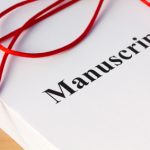In this blog, our guest blogger, Professor Emeritus Dolores Takemoto from Kansas State University discusses plagiarism in scientific documents: what it is, what the penalties are (even if unintentional), and how to avoid it. Merriam-Webster’s online dictionary defines plagiarism as “to steal and … [Read more...]
Verb tenses in scientific manuscripts
A key aspect of producing a well-written scientific manuscript worthy of publication is the use of appropriate verb tenses in the different sections of the manuscript. Here, we discuss when/where/how to use the different verb tenses. Examples of the verb tenses used in two well-written published … [Read more...]
Active versus passive voice in scientific writing
The active voice promotes simple, straightforward writing. As such, most scientific journals encourage the use of the active voice over the passive voice [1]. Active voice – the subject acts. Passive voice – the subject is acted upon. You will use a variety of tenses when writing a scientific … [Read more...]
How to write an effective abstract
An abstract is a short but fully-contained summary of a study. Its purpose is to entice readers into wanting to read the full paper. This poses a challenge, given the ever increasing volume of documents and texts. As such, an effective abstract is key for the dissemination of your research. An … [Read more...]
How can I create a good impression with my cover letter?
The cover letter seems very impersonal, how can I make it more impressive so that the Editor will treat my submission favorably? The review of your article will be based on your research and how it is presented in the article itself. However, the Editor has to agree to send your article for review. … [Read more...]




